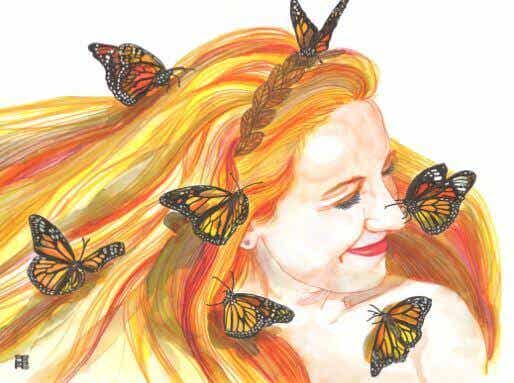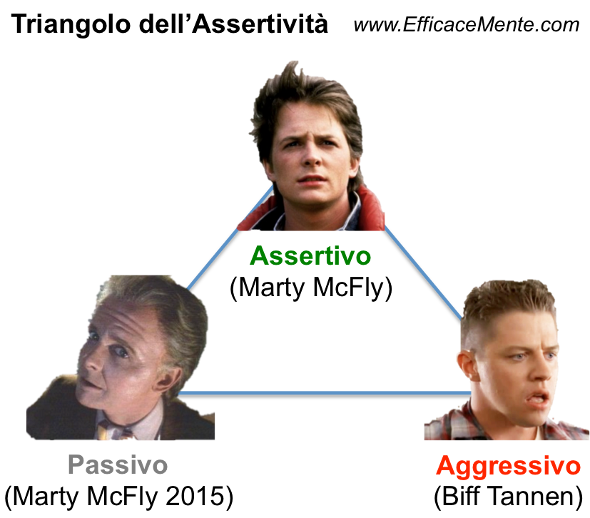Echo syndrome defines those people who have stopped worrying about themselves in order to give emotionally to others.

Written and verified by the psychologist GetPersonalGrowth.
Last update: 15 November 2021
Eco's syndrome draws inspiration from the nymph named Eco who, punished by Hera, was forced to repeat the last words of each conversation. This mythological figure today represents many people who struggle day after day to have a voice of their own, to be visible. Which they are very unlikely to achieve because they are surrounded by a narcissist.
One of the newest terms in the psychological field is undoubtedly the term ecoism. Although the root of this word seems to be related to caring for the environment, it actually finds meaning in Greek mythology. More specifically in an oreade of Mount Eliconia, in love with a beautiful shepherd named Narcissus.
It was Dr. Craig Malkin, professor of psychology at Harvard medical school and clinical psychologist, who first introduced the word ecoism in his book What's Wrong with Feeling Special? Turn narcissism into an advantage for oneself and for others. After the release of the text, the public and the scientific community began to take a keen interest in this new personality trait defined by Dr. Malkin.
Ecoism, or Echo syndrome, is visible in that part of the population that lives under pressure or conditioned by a narcissistic figure. Affectionate and emotionally sensitive people who experience a great sense of discomfort when they are the center of attention. They are afraid to express their needs and put those of others first. These are passive and not very assertive profiles due to the pressure of the partner, the parents or a narcissistic environment.
“Selfish is the one who insists on talking about himself when you die from the desire to talk to him about you”.
-Jean Cocteau-
Echo syndrome: origins and characteristics
Echo syndrome has gained great interest as narcissistic behavior (and its effects) is extending visibly around us. Some research conducted by the University of Bochum (Germany) and published in the Public Library of Science journal, shows that social networks like Facebook allow us to see this growing increase
There are many people who, being surrounded by narcissistic individuals, feel limited in their identity and especially in their self-esteem. On the other hand, if we analyze the myth of Eco we will realize a rather singular aspect. Eco was the most assertive and brilliant nymph in holding a conversation. They all fell at her feet by the grace and intelligence of her words.
Zeus used this gift of his to entertain his wife Hera while he went with other women. So, the day that Hera became aware of her nymph Echo's deception, he punished her by taking away her voice. She could only repeat the last words she heard. Eco's greatest torment was when he fell in love with Narcissus and he laughed at her for her very unique characteristic of her.
It was at that moment that sadness invaded her. The rejection, the humiliation were more painful than losing your voice. Ecoism embodies this essence: we can all count on a past of strong psychological abilities, but the presence of a narcissist can completely cancel us and take us to this symbolic cave on Mount Eliconia where Echo found refuge.
What is a person with Echo syndrome like?
Echo syndrome doesn't just define a person with low self-esteem or addiction problems. This psychological reality is more complex:
- These are people of great emotional sensitivity.
- People who know how to listen to others and very empathetic. Nonetheless, they do not feel comfortable or secure when it comes to expressing their needs to others.
- They are people who do not appreciate their own worth and rarely recognize their successes.
- They do not take steps not to annoy others and reject any project if they think it may be a nuisance or problem for others.
- Echo syndrome is often the consequence of a childhood with at least one parent with a narcissistic personality. A childhood during which emotional and personal needs were neglected or even denied.
- Those affected by this syndrome are aware of it, in fact they are tormented by great internal struggles, they try to impose themselves, to recover their voice, to set limits and make their needs clear. However, it does not always succeed and this leads to constant internal conflicts.
- It is common for ecoists to maintain love affairs with narcissists. Both profiles feed; where one nourishes and the other receives and where there is hardly any real fulfillment or satisfaction in the couple.
Is Eco Syndrome a Psychological Disorder?
Eco syndrome is not a psychological disorder, it's just a feature that shows a poor survival mechanism and which can be summarized as follows: “if I want to be sure of receiving affection, I must ask for it as little as possible and give my best”.
This idea is articulated as a consequence of a childhood based on an insecure attachment that a narcissistic parent ignored all of the child's emotional needs. Over time the victim learns to no longer have a voice, to live in silence, not to disturb too much and at the same time to be a key figure for other narcissists to use their tricks.
We can all emerge from this personal cave. Eco resorted to Nemesis for revenge. However, there is no need to go to such extremes. The punishment that Narcissus received, in fact, did not help the nymph Echo to recover her oratory, her wonderful ability to communicate through the gift of the word.
You just need to work on self-esteem. Understanding that we deserve to be visible, have a voice, express our needs and nurture ourselves with affection and dignity. Because sometimes, it's not wrong to act like that handsome shepherd and look at our reflection in the water to remind us how much we are worth.


























